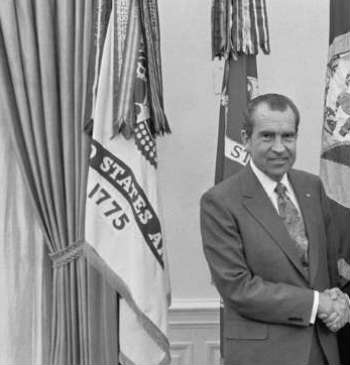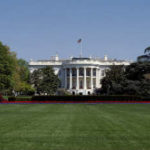Nixon: The First President To Resign In American History
After successful terms in office in the U.S. House of Representatives and as a U.S. Senator from the State of California, Richard M. Nixon ran for U.S. president and won, becoming the 37th U.S. president. However, he became the first U.S. president to ever resign. Ira Riklis gives the reasons behind his resignation.
Nixon’s Accomplishments Before He Had To Resign
Richard Nixon entered the White House during times of great turmoil across the country and turmoil related to U.S. interests and relations around the globe. He won the presidency in 1968 after failed attempts to rise above his seat in the U.S. Senate, first when running for President of the United States in 1960, losing to John F. Kennedy, and then for California Governor in 1962.
He already had experience in the White House after serving as Vice President during the Eisenhower Administration. In 1968, Nixon won the election to become President of the United States, winning against George Wallace and Hubert Humphrey.
Keeping Campaign Promises
After taking office, President Nixon kept some of his campaign promises, including appointing conservatives to the U.S. Supreme Court. The official White House site points out that Nixon also ended the military draft, implemented an environmental program and new anti-crime laws.
The first American astronauts successfully landed on the moon shortly after Nixon took office. Back on Planet Earth, Nixon became instrumental in helping reduce tensions between China and the U.S.S.R., successfully introducing a treaty to limit strategic nuclear weapons.
The Nixon Administration also relished in several other accomplishments. Some Americans likely feel that one of President Nixon’s greatest accomplishments was bringing an end to Americans fighting in Indochina.
In spite of Nixon’s accomplishments, it was his wrongful acts that he became most known for, ultimately leading to his downfall.
Watergate Scandal Brings Nixon Down
Even as he worked to end American involvement in some war-torn areas overseas and Nixon soundly defeated George McGovern for the U.S. Presidency in 1972, other events occurred that Richard Nixon likely thought would never come to light.
The Federal Bureau of Investigation (FBI) reveals details that eventually became known as the Watergate Scandal. Multiple persons broke into the Democratic National Committee Headquarters on June 17, 1972, during the time of the Presidential campaign. A guard on site at the DNC discovered the burglars, called the police, leading to the burglars getting arrested.
When investigations traced the break-in back to the campaign staff of President Richard Nixon, Richard Nixon and his staff worked diligently to commit further illegal acts by attempting to cover up the involvement of the president.
Denying Involvement In The Scandal
President Richard Nixon repeatedly denied his direct involvement, resisted investigations every step of the way, including refusal to turn over White House tapes recorded during the Nixon presidency.
President Nixon initially stayed the course, even as several of his staff and other officials either resigned or were arrested in relation to the Watergate break-in. Copies of actual documents related to the Watergate Investigation are available for viewing at the FBI site. Through thorough investigation and documentation of events and persons connected to the Watergate scandal, the focus turned directly on the President of the United States.
Becoming The First President To Step Down
Articles of impeachment were drawn against the 37th U.S. president, with Nixon still protesting, in spite of the Watergate tapes clearly demonstrating his involvement.
The Watergate investigation raged on for two years before Nixon finally relented rather than face almost certain impeachment.
The Washington Post announced the resignation of Richard Nixon, the first U.S. president to ever resign office.
The Washington Post explained that upon Nixon’s resignation, then-Vice President Gerald Ford would take the Oath of Office immediately after the resignation of Nixon at 12 noon on August 9, 1974.
Nixon took to the airwaves on August 8, delivering his resignation to the American People.







